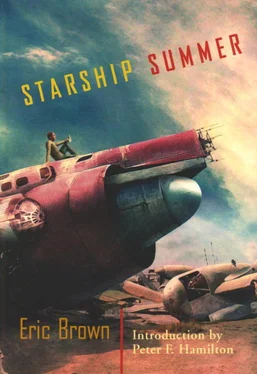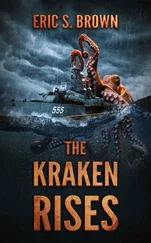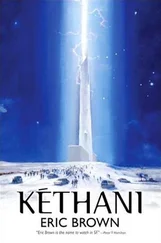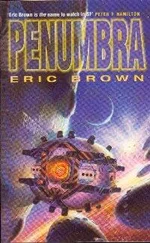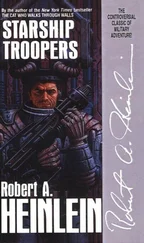STARSHIP SUMMER
by Eric Brown
So we’re now well into the “new millennium,” that evocative date beyond which used to be purely the realm of science fiction. So when our clocks finally flipped over that fateful Y2K point, did all us SF authors suddenly become “contemporary” authors? Not according to the marketing strategists and helpful genre-labelled shelves in bookshops—normally at the back of bookshops away from daylight and public sight. Nope; we’re still apparently churning out stories about spaceships, robots, and ray guns (well, I am, anyway). That distinctive summary of all things SF. Take a bow, marketing department and the popular press.
Actually, on one level, I have to admit, it’s a fair cop. Us SF authors write the literature of ideas, pushed forward by advancing technology whose chrome-plated gadgets gleam brightly and enticingly in the strange light of alien suns. Who can resist all that shiny new gadgetry? The way it affects our lives, the options it provides, all those myriad neat possibilities for a twist in the tale as you reverse the polarity, decouple the tachyon spin, and escape with a mighty bound. It’s useful stuff. Back in the alleged golden age of SF, which I think is the late forties/early fifties depending on who you ask, engineering and science were the defining parameters for SF: that’s what it was all about. People in these stories were mere tour guides to steer you through the possibilities of new worlds full of wonderful ideas. They didn’t count, they weren’t characters with feelings or personalities.
I’m generalizing monstrously of course. Some tech-driven stories did have great characters, and not every story was about technology. I’ll just mention A Canticle for Leibowitz and Way Station as my prime examples of non-techie novels from this era, and leave you to nominate your own favourites—it’s a fun game.
However, the point of all this is that the SF genre from the forties onward was largely perceived as cowboys in space, adventure for teenagers; then, as we moved into the computer age: for geeks. A perception reinforced by most SF films and TV series.
It was certainly what I tended to read in my teens.
Then I tried to write the stuff—that was in the mid-eighties. There were a lot of us starting out back then. And yes, we wrote a lot of hard SF as it’s called now, but there was a big shift in focus. The stories were about societies and the effects of technology on individuals. Almost a shift back, if you like, to the ideas-based narratives of Wells and Verne but with a modern edge. That’s when I started buying Interzone, and when, of course, I discovered Eric Brown.
Eric was then and remains to this day a thoroughly modern writer. The issues and concepts he deals in are those of today. In that respect he is a contemporary writer. It’s the settings which are SF, but he’s successfully thrown off the convention of science permeating every page. Yes, there are spaceships, and sometimes robots, and even aliens, but they are not the central pillar of the story. Especially not in the case of Starship Summer . Eric’s skill lies in the way in which he deals with futuristic technology, incorporating it into the narrative in the same easy way as we treat our own technology today; it’s an interesting peripheral and nothing more. It helps us do certain things, it hinders us in others, and it throws up interesting possibilities. No matter its form, Eric puts his characters firmly centre stage, and that sets him well above the horrific pigeonholing which SF is still forced to endure.
I read Eric’s stories because I want to find out what happens to the people involved. He’s good at crafting them, and he’s very good in creating their predicaments, almost all of which are self-inflicted, the outcome of human nature in all its stubbornness and sorrow. With Starship Summer we’re introduced to Conway, our narrator, a man with a tragic past seeking the escape of solitude on a distant, apparently insignificant planet. Hawksworth, a man with an equally veiled past. Old spaceships with an unknown pedigree. An artist past his prime. Mysterious lady with an even more mysterious ailment. Alien religion—that isn’t quite. All fascinating stuff. But Eric’s artistry is the way in which he combines these traits in an intricate dance of emotion and feeling. There are the Big Events of SF going on there, but only in the background, secondary to the people we quickly grow to care about. To say anything more about them would be a plot-spoiler, and I’m not doing that. All I knew when I picked up the manuscript was that I’d be drawn into the story and enjoy the outcome, and that’s what I can reassure you that you’ve got with this book in your hands.
As always, Eric has blended the very best facets of futuristic fiction, giving us an elaborate, gentle vision of a desirable future populated by characters that inspire both sympathy and poignancy.
Eric’s output, certainly when it comes to novels, isn’t as frequent or as sizable as I for one would like to see; which makes novellas like this all the more important to those of us who wait impatiently for what he releases. Once again I enjoyed what he produced, and once again I’m left waiting anxiously for the next one.
Peter F. Hamilton Rutland, February 2007 Dedicated to the Memory of Michael G. Coney
Last year I left Earth and Telemassed twenty light years through space to the colony world of Chalcedony, Delta Pavonis IV. I was looking for peace, for a retreat from the nightmares that plagued me. I was looking for contentment after a period of pain. I should have known, of course, that you cannot outrun your nightmares: they are with you until you find the strength to look deep within yourself and banish them with courage.
I took the Telemass relay via the four stations between Earth and Chalcedony and arrived feeling as if I’d died four times and been brought back to life—which, in effect, is exactly what had happened. Dazed, nauseous, I booked into an expensive hotel overlooking the ocean and slept for twenty-four hours. The following day I enquired at a couple of real estate agents. I was looking for a quiet, out of the way place, far from the tourists and the religious pilgrims who flocked to the planet in their droves.
That afternoon I hired a ground-effect vehicle and drove a hundred kilometres up the coast to the small beachside settlement of Magenta Bay. There, an overweight local in his sixties, all tan and smile, showed me around a few A-frames and then, sensing they were not what I was looking for, suggested I might like to view a plot of land with the idea of having my own place built.
I liked the area. Magenta Bay consisted of a dozen beachfront dwellings—A-frames and villas—and a few stores set back from the water. The sand was as fine and red as Hungarian paprika, and the rainforest that backed the settlement a startling, alien green. The purple mountains of the interior were sufficiently different to remind you that you were no longer on Earth.
I selected a plot on the northern headland of the bay, close enough to the centre of town to provide a short walk for the necessities, but far enough away from the nearest villa so as not be bothered by inquisitive neighbours.
I signed the paperwork, paid a deposit, then began the long drive back to MacIntyre to look for a dwelling that might suit the land I had bought.
In the event I didn’t get that far.
I was three kilometres out of Magenta when I saw the scrapyard. My first impression was that this was an incongruous, not to say ugly, business to set up in paradise. My second impression, when I made out the nature of the scrap, was tinged with a romanticism that recalled my youth and my fascination with the exploration of space, and I knew I had to stop and take a look around.
Читать дальше
